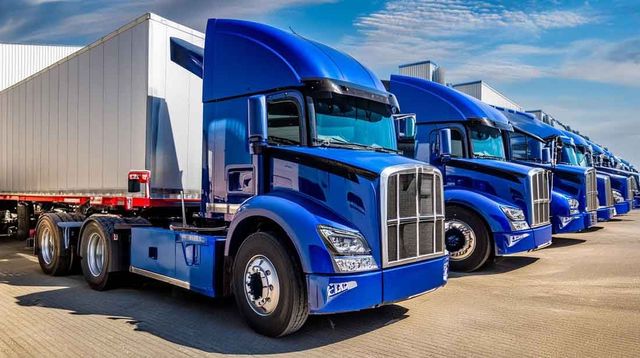Moving freight in today’s frantic business environment isn’t solely about trucks or routes It’s about being flexible, having data and the right systems to handle the unexpected. Your logistics partner should provide more than basic freight services, whether you are an entrepreneur who must get your products to market on time, or a retailer who has to manage multiple shipments per day. They need to offer assurance, control, and confidence.

Image credit: translogisticsinc.com
That’s where modern freight brokerage services and technology-driven 3PL providers step in to change the game.
The modern Freight Broker is More Than an Middleman
Traditionally the role of a freight broker was thought of as a person who was a person who connected shippers and carriers. Freight brokers are now strategic partners that manage logistics on behalf of customers. They negotiate lower rates, scout reliable carriers deal with disruptions, and can help prevent costly delays.
A reputable freight broker will save you time and cash by avoiding logistical challenges that can impact your bottom line.
Translogistics, Inc. (TLI) Companies are redefining what this relationship is. By offering multimodal freight brokerage services, they allow businesses to shift between parcel, LTL (less-than-truckload), and volume LTL shipments depending on urgency, budget, or customer needs. This flexibility is more vital than ever before.
3PL Providers – The additional layer of planning you did not realize you required
If you’re working with multiple carriers, having to handle invoices, tracking your shipments manually and managing claims in a spreadsheet, it might be time to think about a 3PL provider. Third-party logistic partners can assist you to save time by taking over these tedious tasks.
A good 3PL provides more than outsourcing services. They provide structure strategies, expertise, and strategy. They study your patterns of shipping, suggest innovative solutions, and provide the latest technology to the logistics department. It’s not about reacting to problems, you’re also stopping the occurrence of problems. In an industry that demands transparency and effectiveness, the tools utilized in the background can make a big difference.
The function of a Transportation Management System
Think of a transport system as the command center for your cargo. This is your digital brain, which lets you track your, control and optimize all of your freight on a single platform. TMSs give you visibility and control that you’ve never previously had. From real-time carrier prices to the creation of Bills of Lading, and reviewing freight bills.
Translogistics ViewPoint TMS platform was created with these intentions in mind. It compares rates across different modes, and it also features drag-and-drop data entry powered by AI to remove manual typing that can slow down teams. This is just one example of how logistics technology is advancing to enable faster, cleaner, and more precise operations.
What is the reason it all boils down to Partnership
Logistics isn’t just about processes and services, but it’s also about people. You require a group of professionals who are aware of the stakes when you have a shipment late or a dependable carrier. This is the reason why choosing an 3PL or a freight broker shouldn’t be a decision based on transactions. It’s also a decision that’s strategic.
Find a partner who is attentive to you, is flexible and willing to invest in the latest technology. This will make the supply chain grow. Someone who takes your shipment seriously and will treat them with the same care like you. When you have the right support, freight becomes a smooth operation. Your business is better and better positioned to grow. Modern logistics involves more than simply moving freight. It’s all about moving more efficiently.